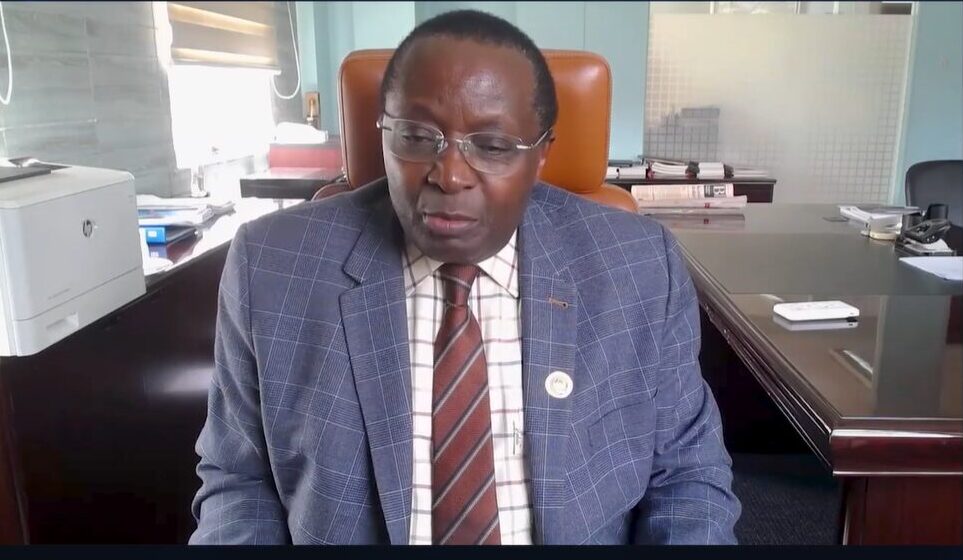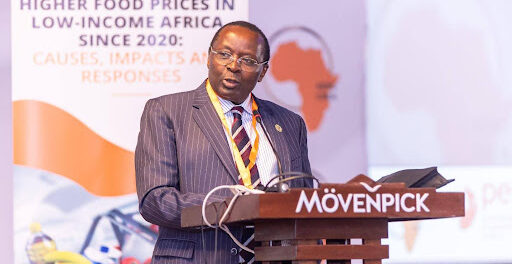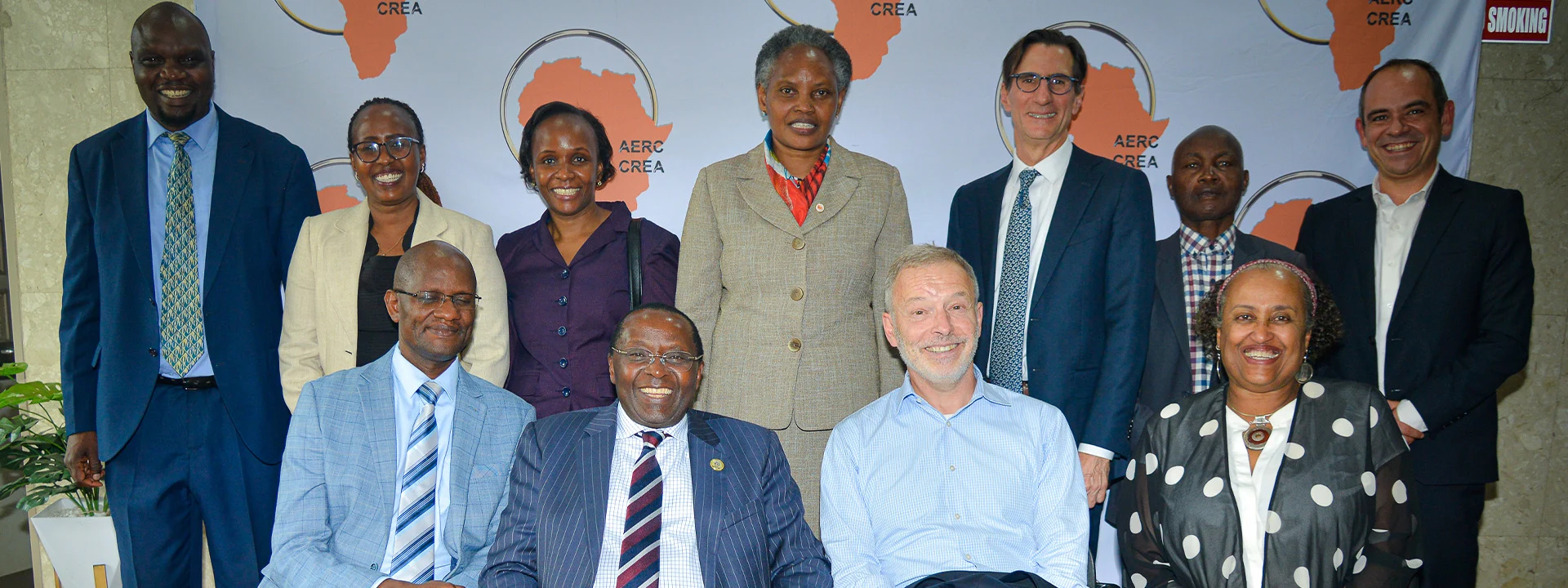

Youth, Demographic Dividend, Migration, and Economic Opportunities in African Economies
May 20, 2024With “Youth, Demographic Dividend, Migration, and Economic Opportunities in African Economies” as its theme, the African Economic Research Consortium’s (AERC) 60th Biannual Research Workshop kicks off with a plenary session beginning at 9:00 am on Sunday, 2 June 2024 at Radisson Blu Hotel in Nairobi, Kenya. The plenary session is one of the most respected and highly regarded events that has over three decades continued to attract world class development economists and experts on African economies. The insights presented in this plenary offer fresh perspectives and define new frontiers of research that respond to the pressing needs of policy makers.
The welcoming remarks during the official opening session of the plenary will be done by Professor Victor Murinde, Executive Director, AERC. These remarks will be followed by the official opening of the session by Hon. Prof. Njuguna Ndung’u, Cabinet Secretary, National Treasury & Economic Planning, Kenya. A keynote on ‘Promotion of productivity in the informal sector as part of the strategy to capture the demographic dividend’ will be delivered by Prof. Aly Ahmadou Mbaye, Professor of Economics and Public Policy, Vice Chancellor, University Cheikh Anta Diop, Dakar, Senegal. The whole of this session will be chaired by Dr. Patrick Njoroge, Former Governor, Central Bank of Kenya.
“Africa is grappling with complex issue of creating jobs, migration, and demographic dynamics. The labour market aspect of this year’s plenary has been a core preoccupation of previous plenary sessions of AERC, which underscores the importance of job creation and poverty reduction in the continent,” said Prof. Murinde, AERC Executive Director, adding that AERC has a long tradition of researching these interrelated issues by generating ideas and policies.
From a policy perspective, youth labour market participation either in wage employment, self-employment and job-generating entrepreneurship is of paramount importance. There is widespread youth unemployment in Africa projected that in 2025 more than 263 million young people may be economically vulnerable. Equally, it is important to recognize the unique demographic structure of Africa, which is skewed towards the youth. Currently, an estimated 420 million youth reside in Africa providing immense potential for economic development if channeled to productive activities.
Economic opportunities for African youth, women and the whole population can expand by leveraging technology implementing the African Continental Free Trade Area (AfCFTA) and improvements in educational quality with the aim of inclusive growth. One of the arguments for youth engagement in the productive sectors of the economy is the development of employable skills. Well-educated and healthy individuals with diverse skills are likely to participate in highly valued economic activities, thus boosting economic development prospects.
The youth bulge is a double edge sword. It can be beneficial for inclusive growth and sustainability or a ticking time bomb on a quest for highly productive livelihoods if not appropriately harnessed by African governments. African governments can proactively harness demographic dividend benefits when young people have adequate employable skills and access to decent employment.
The plenary session will feature four presentations by eminent economists: Prof. Imran Rasul, Professor of Economics, Department of Economics, University College London (UCL), UK will start off the proceedings with a look at “Tackling youth unemployment in Africa”. Next, Prof. Lant Pritchett Blavatnik School of Government, Oxford University, will then speak on “Investing in human capital/education for a demographic dividend” and the last paper will be on “Migration Policies in Africa’s RECs” by Blaise Gnimassoun, Maître de Conférences – HDR, BETA, Université de Lorraine, Chercheur associé à EconomiX, Université Paris Nanterre. These papers will be discussed by eminent economists from Africa and the rest of the world including, Prof. Finn Tarp, University of Copenhagen, Denmark; UK; Prof. Yaw Nyarko, NYU, USA and Dr. Freddie Carver, Regional Director, ReDSS, Kenya, respectively. These presentations will be chaired by Prof. Peter Muriu, University of Nairobi, Kenya.
A high-level policy panel discussion on the theme will close the plenary agenda. To be moderated by Ms. Maggie Mutesi, Africatalyst, the panellists will comprise African policy makers and analysts including Dr. Vera Songwe, Non-resident Senior Fellow, Africa Growth Initiative, Brookings Institution; Prof. Andrew Mwaba, Director, Kuyuma Development Ltd (formerly of AfDB Group); Dr. Thomas Bwire, Deputy Director, COMESA Monetary Institute; Dr. Rose Ngugi, Executive Director, KIPPRA; and Dr. Patricia Ojangole, Managing Director, Uganda Development Bank. These panel discussions will set the stage for frontier research by leading academics generating evidence on opportunities, risks, and challenges that affect the youth and how African economics can harness the trade-offs of demographic dividend and migration for sustainable development.
Concurrent sessions of the biannual research workshop proper start on Monday, 3 June 2024. They will feature over 63 presentations of research proposals, work in progress, final reports, and interim PhD thesis reports. These will cover a wide range of topics that fit into one or the other of the focal areas of AERC’s thematic research programme: poverty, income distribution and labour market; macroeconomic policies and growth; finance and resource mobilization; production, trade, and economic integration; as well as agriculture, climate change and natural resource management issues.
Preceding the main biannual research workshop will be one very important meeting: a side event at the 2024 AfDB Annual Meetingsthat will be held on 27 May 2024 in Nairobi, Kenya. Focusing on the theme “Building resilient African economies in the face of global shocks”, this dynamic side event convenes influential policymakers, development practitioners, leading researchers, and private sector representatives. Drawing on Internation Development Research Centre (IDRC)-supported initiatives and other recent African-led research, it will address the following crucial areas: Finance and the Impact of War; Macroeconomic Shocks and Microeconomic Stability; Resilience in Fragile Contexts; and Gender-Sensitive Policymaking.







